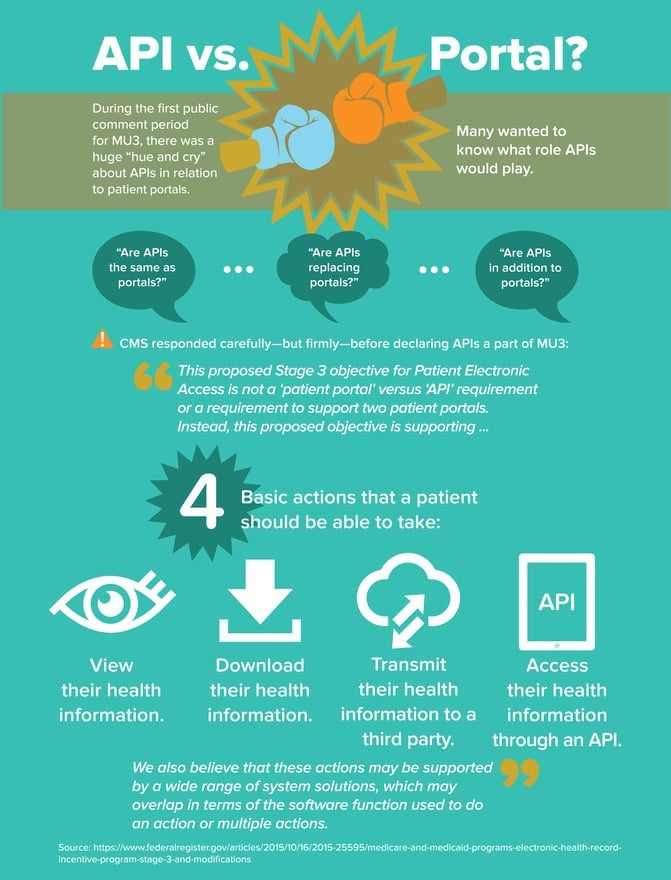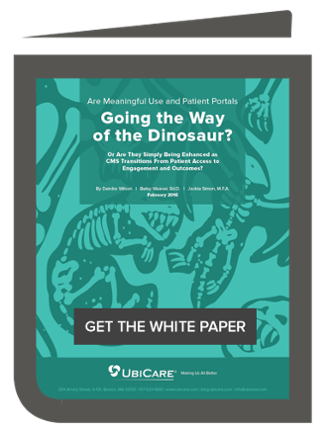As Meaningful Use moved to Stage 3 (MU3) in 2015, the Centers for Medicare and Medicaid Services (CMS) added APIs (application programming interface) as an alternative or complement to patient portals.
But are these two digital health tools at odds with each other? And where do APIs fit in with Meaningful Use Stage 3?
An API is a set of programming protocols for accessing a software application online. By inputting specific information, patients can use an API to see, download and share their health information in a way that CMS notes:
- Is more flexible than current patient portals
- Allows patients to receive their health information “from multiple [healthcare] providers and potentially incorporate all of their health information into a single portal, application, program, or other software”
- Would free hospitals up from separately purchasing and implementing patient portals
The infographic below highlights some of the questions raised by hospitals and health systems about the addition of APIs to Meaningful Use and what APIs should be able to do for patients.
MU3 requires that, beginning in 2018 (with an option to voluntarily start in 2017), providers allow for patient access to EHRs in the 4 ways stated in the infographic and that more than 80% of unique patients be able to “access that information within 48 hours of its availability to the eligible provider and 36 hours of its availability to the provider for an eligible hospital.”
With APIs in the mix, some patient portals may indeed go the way of the dinosaur, because they weren’t created to add value to patient access. But other portals will likely flourish because they’ve found the “right formula” for luring patients in with APIs and keeping them there.









